Jerzy's Istanbul shoot-out secrets
Jerzy Dudek opened up about his experiences in Istanbul in a recent interview out in Kuala Lumpur, during which the Pole answered questions from followers of @LFCMalaysia.
Dudek was between the sticks as a group of Liverpool legends won the 2013 Standard Chartered Malaysia Cup – and he took time out to chat to Liverpoolfc.com. Here is a transcript of the full interview...
How did you feel when your move to Liverpool came about?
I felt great. Everything was done very quickly. It happened on the final day of the transfer window and everything needed to be done very quickly. There was a big panic around me with the medical staff but when I arrived at Liverpool and I signed my contract, I was very grateful. At the time I didn't realise that above my bed, in the house where I grew up in Poland, I had kept a Liverpool scarf throughout my childhood. I was playing for Poland against Norway in the qualifiers for the World Cup in South Korea and Japan and my mother and father came to visit me in the hotel in Holland. My mother brought this scarf with her and she said to me: "Do you not remember this?" I had forgotten all about it because I had spent five years playing in Holland with Feyenoord. So the move was like a dream come true for me.
Who is the best player you have ever played with?
I had the chance to play with really good players so it's very difficult to choose one. When you play for Rotterdam, Liverpool and Madrid, it's really hard to pick. But Steven Gerrard, Xabi Alonso and Cristiano Ronaldo are three. Pierre van Hooijdonk, Ronald Koeman. But the one who has had the most influence on any team would be Steven.
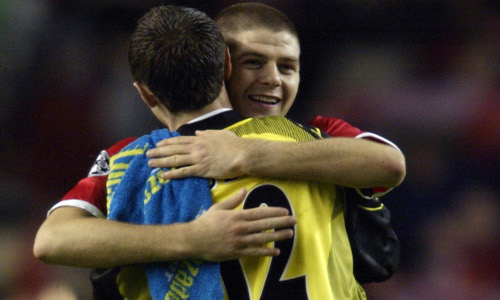
How did you prepare yourself for the penalty shoot-out in Istanbul?
We had a few meetings with the goalkeeping coach before the game. We always did this routine before cup games when there is a risk of penalties. I watched a video of the opposition players shooting. The video gives you some idea of where the player is going to go, whether he is going to hit it hard or wait for the goalkeeper to make a move. But there were too many Milan players to remember. And at the end of the day they always change. And you have to try and provoke them to shoot where you want and not where they want. I was full of confidence going into the shoot-out. I had never had that much confidence in my life before. When I heard the referee's whistle, I went to Jose Ochotorena, the goalkeeping coach, because he had a book with the penalties in that we had practised and watched. He opened the book and there was about 30 penalties in there and I said that I wouldn't be able to remember them in two minutes. So I said: "Can you show me your hand when you see each player coming. If you can raise your hand, left or right, then I will see which way to go." He agreed.
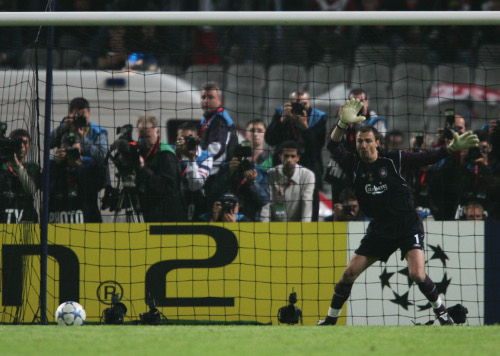
But then, suddenly, Jamie Carragher was on my back. He was jumping around and pushing me. He was telling me to put them under pressure, to do something on the goalline - maybe do what Grobbelaar did in Rome in 1984. I said: "Jamie, let me relax and study the penalties first. I have only got two minutes!" But he kept pushing me. It was funny, but I was focused and I was really on target. When I went to take my position in the goal, I thought about trying a little bit to destroy their focus. Serginho came forward and I started doing these crazy hand actions to make the goal smaller and my frame bigger. He was looking and turning around, he looked nervous as he took two steps back. I did more movement and he shot over the bar. Then I thought: "This seems to be working." And then after that I did more and more. It was all about putting them under pressure because as a goalkeeper you don't have anything to lose in the shoot-outs. And in the end, it was perfect.
How on earth did you make the double save from Shevchenko in Istanbul? What's in your mind at that time?
When I saved the shot from Shevchenko with just seconds before the finish, I was thinking - after this, things cannot get any worse. At that moment, it was in Milan's hands and they had the chance to win the game but Shevchenko didn't take it.
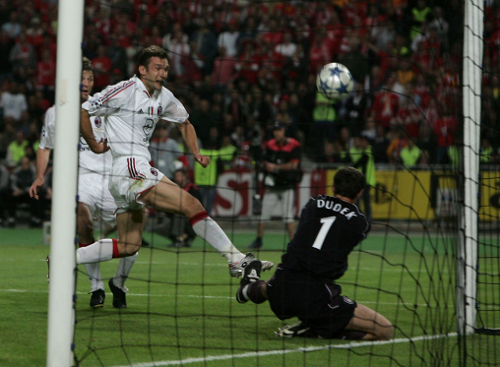
What did you feel when you saved the penalty from Shevchenko?
Seconds after I made the save, I thought the shoot-out was not over. I was concentrating and telling myself to keep going and never give up. When I saved the ball, I was preparing myself for another penalty. I saw that Shevchenko was angry and then I looked and saw all the lads coming at me. I thought: "This must be the end." I don't want to say that it was the best moment of my football career because this moment was the best for all of us. To win it the way we did is all about Liverpool Football Club - they never give up. Fight to the end.
What did Rafa Benitez say to the team at half-time in Istanbul?
We were all really quite down because we did not expect the first half to unfold the way it did. Rafa was trying to change the squad around to give Didi Hamann a chance, because they were very strong in the middle. But we didn't have much time and suddenly the referee whistled to call us out for the second half. Djimi Traore went out of the side but then came back in because Steve Finnan had got injured. I remember Alex Miller said something that was fantastic. It was a great moment. He said: "Okay boys, don't panic. Forget the first half. Try to score a goal as soon as possible. If you do, Milan won't panic because they will think one goal is nothing.
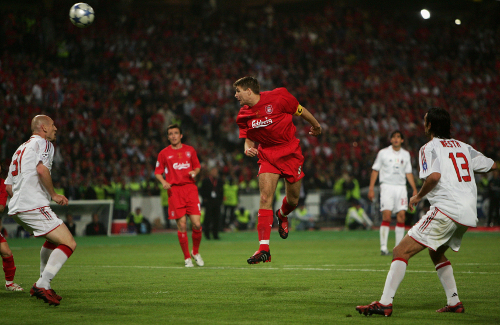
"Then you'll have the chance to use that to your advantage to score the second. Then they will start to panic because you are Liverpool. And they know what that means. When they panic, you can start to feed off that and you can make it. You can really make it." And it happened exactly that way. But I think the most fantastic moment was when we came out of the tunnel and the fans were standing up and singing 'You'll Never Walk Alone'. That moment gave us such confidence. Even though we were losing 3-0, the people were still behind us. And we thought: "What can be wrong? We have waited 20 years for this, to be back in the final. It doesn't matter. Let's go and enjoy it." The people in the stands gave us the most important push that helped us win the trophy.
How did you feel when you had to leave Liverpool?
That was a difficult moment for me but I had to leave. I knew I had to take a step back in order to move two steps forward. The week before the final against AC Milan in Athens, I got an offer from Real Madrid. I was a little confused at the time. I didn't know what to do. Madrid are great and when they come calling, you cannot say no to them. But they explained that I wouldn't play and that they wanted me to motivate Iker Casillas. They already knew of me through my Spanish colleagues and they knew about my character in the dressing room.
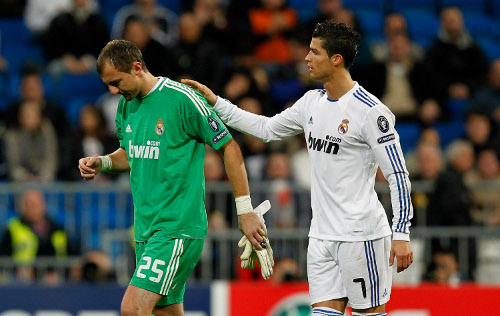
They waited two months for me and at the end I signed. I said to myself and to my colleagues at Melwood that I would probably never play for a better club with better players than Liverpool ever again. Then I went to Madrid and in 2009, we met Liverpool in the Champions League first knock-out round. And Liverpool beat us 5-0 on aggregate. I was not happy because my team had lost - but I was happy with my promise. I did not play for a better club with better players than Liverpool.
What is the one thing you enjoy the most about playing football?
Football is my passion and it's what I have always done since I was very young. I'm very fortunate because a lot of people do not get that opportunity. The most important and most beautiful moment for me must be when I signed my first semi-professional contract for my local club Concordia Knurow. The manager had a lot of faith in me and he thought I had the character to make it. After six months I was the second-choice 'keeper and after eight months, I was the first.
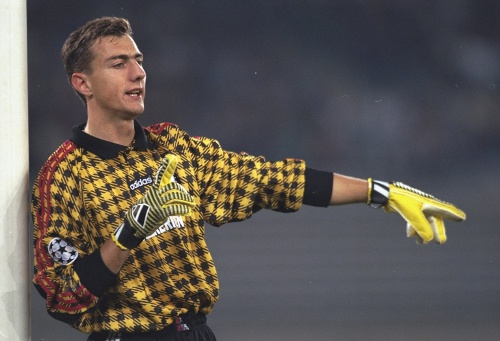
On Saturday, LFC TV will feature a day of programmes dedicated to the Reds' five European Cup triumphs. Find out how you can watch the club's official channel>>



